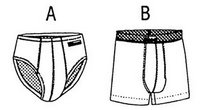Tender Calvinist: An Oxymoron? It Need Not Be!
 And the Lord's servant must not be quarrelsome but kindly to every one, an apt teacher, forbearing, correcting his opponents with gentleness. God may perhaps grant that they will repent and come to know the truth, and they may escape from the snare of the devil, after being captured by him to do his will. (2 Timothy 2:24-26, RSV)
And the Lord's servant must not be quarrelsome but kindly to every one, an apt teacher, forbearing, correcting his opponents with gentleness. God may perhaps grant that they will repent and come to know the truth, and they may escape from the snare of the devil, after being captured by him to do his will. (2 Timothy 2:24-26, RSV)I’ve heard it said that when you get two Calvinists together, the two of them will spend more time arguing about that with which they disagree, than on that which they hold in common. Perhaps you’ve seen that of others, or even in yourself (I must admit that I have).
Well, John Newton (1725-1807) - a self-proclaimed Calvinist who held strong to the truths of the Gospel of Grace - had these words of admonishment to a minister who was about to write an article criticizing a fellow minister for his lack of orthodoxy (having written to John Newton to let him know of his intention). I print it in its entirety as it’s worth the read.
Dear Sir,
As you are likely to be engaged in controversy, and your love of truth is joined with natural warmth of temper, my friendship makes me solicitous on your behalf. You are of the strongest side; for truth is great, and must prevail; so that a person of abilities inferior to yours might take the field with a confidence of victory. I am not therefore anxious for the event of the battle; but I would have you more than a conqueror, and to triumph, not only over your adversary, but also over yourself. If you cannot be vanquished, you may be wounded. To preserve you from such wounds as might give you cause of weeping over your conquests, I would present you with some considerations, which, if duly attended to, will do you the service of a great coat of mail; such armor, that you need not complain, as David did of Saul’s, that it will be more cumbersome than useful; for you will easily perceive it is taken from that great magazine provided for the Christian soldier, the word of God. I take it for granted that you will not expect any apology for my freedom, and therefore I shall not offer one. For methods sake, I may reduce my advice to three heads: respecting your opponent, the public, and yourself.
As to your opponent, I wish that before you set pen to paper against him, and during the whole time you are preparing your answer, you may commend him by earnest prayer to the Lord’s teaching and blessing. This practice will have a direct tendency to conciliate your heart to love and pity him; and such a disposition will have a good influence upon every page you write. If you account him a believer, though greatly mistaken in the subject of debate between you, the words of David to Joab concerning Absalom, are very applicable: “Deal gently with him for my sake.” The Lord loves him and bears with him; therefore you must not despise him, or treat him harshly. The Lord bears with you likewise, and expects that you should show tenderness to others from a sense of the much forgiveness you need yourself. In a little while you will meet in heaven; he will then be dearer to you than the nearest friend you have upon earth is to you now. Anticipate that period in your thoughts, and though you may find it necessary to oppose his errors, view him personally as a kindred soul, with whom you are to be happy in Christ forever. But if you look upon him as an unconverted person, in a state of enmity against God and his grace (a supposition which, without good evidence, you should be very unwilling to admit), he is a more proper object of your compassion than of your anger. Alas! “He knows not what he does.” But you know who has made you to differ. If God, in his sovereign pleasure, had so appointed, you might have been as he is now; and he, instead of you, might have been set for the defense of the gospel. You were both equally blind by nature. If you attend to this, you will not reproach or hate him, because the Lord has been pleased to open your eyes, and not his. Of all people who engage in controversy, we, who are called Calvinists, are most expressly bound by our own principles to the exercise of gentleness and moderation. If, indeed, they who differ from us have a power of changing themselves, if they can open their own eyes, and soften their own hearts, then we might with less inconsistency be offended at their obstinacy: but if we believe the very contrary to this, our part is, not to strive, but in meekness to instruct those who oppose as taught in 2 Timothy 2:25, “If peradventure God will give them repentance to the acknowledgment of the truth.” If you write with a desire of being an instrument of correcting mistakes, you will of course be cautious of laying stumbling blocks in the way of the blind or of using any expressions that may exasperate their passions, confirm them in their principles, and thereby make their conviction, humanly speaking, more impracticable.
By printing, you will appeal to the public; where your readers may be ranged under three divisions: First, such as differ from you in principle. Concerning these I may refer you to what I have already said. Though you have your eye upon one person chiefly, there are many like-minded with him; and the same reasoning will hold, whether as to one or to a million.
There will be likewise many who pay too little regard to religion, to have any settled system of their own, and yet are pre-engaged in favor of those sentiments which are at least repugnant to the good opinion men naturally have of themselves. These are very incompetent judges of doctrine; but they can form a tolerable judgment of a writer’s spirit. They know that meekness, humility and love are the characteristics of a Christian temper; and though they affect to treat the doctrines of grace as mere notions and speculations, which, supposing they adopted them, would have no salutary influence upon their conduct; yet from us, who profess these principles, they always expect such dispositions as correspond with the precepts of the gospel. They are quick-sighted to discern when we deviate from such a spirit, and avail themselves of it to justify their contempt of our arguments. The Scriptural maxim, that “the wrath of man works not the righteousness of God,” is verified by daily observation. If our zeal is embittered by expressions of anger, invective, or scorn, we may think we are doing service of the cause of truth, when in reality we shall only bring it into discredit. The weapons of our warfare, and which alone are powerful to break down the strongholds of error, are not carnal, but spiritual; arguments fairly drawn from Scripture and experience, and enforced by such a mild address, as may persuade our readers, that, whether we can convince them or not, we wish well to their souls, and contend only for the truth’s sake; if we can satisfy them that we act upon these motives, our point is half gained; they will be more disposed to consider calmly what we offer; and if they should still dissent from our opinions, they will be constrained to approve our intentions.
You will have a third class of readers, who being of your own sentiments, will readily approve of what you advance, and may be further established and confirmed in their views of the Scripture doctrines, by a clear and masterly elucidation of your subject. You may be instrumental to their edification if the law of kindness as well as of truth regulates your pen, otherwise you may do them harm. There is a principle of self, which disposes us to despise those who differ from us; and we are often under its influence, when we think we are only showing a becoming zeal in the cause of God. I readily believe that the leading points of Arminianism spring from and are nourished by the pride of the human heart; but I should be glad if the reverse were always true; and that to embrace what are called the Calvinistic doctrines was an infallible token of a humble mind. I think I have known some Arminians, that is, persons who for want of a clearer light, have been afraid of receiving the doctrines of free grace, who yet have given evidence that their hearts were in a degree humbled before the Lord. And I am afraid there are Calvinists, who, while they account it a proof of their humility, that they are willing in words to debase the creature and to give all the glory of salvation to the Lord, yet know not what manner of spirit they are of. Whatever it be that makes us trust in ourselves that we are comparatively wise or good, so as to treat those with contempt who do not subscribe to our doctrines, or follow our party, is a proof and fruit of a self-righteous spirit. Self-righteousness can feed upon doctrines as well as upon works; and a man may have the heart of a Pharisee, while his head is stored with orthodox notions of the unworthiness of the creature, and the riches of free grace. Yea, I would add, the best of men are not wholly free from this leaven; and therefore are too apt to be pleased with such representations as hold up our adversaries to ridicule, and by consequence flatter our own superior judgments. Controversies, for the most part, are so managed as to indulge rather than to repress his wrong disposition; and therefore, generally speaking, they are productive of little good. They provoke those whom they should convince, and puff up those whom they should edify. I hope your performance will savor of a spirit of true humility, and be a means of promoting it in others.
This leads me, in the last place, to consider your own concern in your present undertaking. It seems a laudable service to defend the faith once delivered to the saints; we are commanded to contend earnestly for it, and to convince gainsayers. If ever such defenses were seasonable and expedient they appear to be so in our own day, when errors abound on all sides and every truth of the gospel is either directly denied or grossly misrepresented. And yet we find but very few writers of controversy who have not been manifestly hurt by it. Either they grow in a sense of their own importance, or imbibe an angry, contentious spirit, or they insensibly withdraw their attention from those things that are the food and immediate support of the life of faith, and spend their time and strength upon matters that are at most but of a secondary value. This shows, that if the service is honorable, it is dangerous. What will it profit a man if he gains his cause and silences his adversary, if at the same time he loses that humble, tender frame of spirit in which the Lord delights, and to which the promise of his presence is made? Your aim, I doubt not, is good; but you have need to watch and pray for you will find Satan at your right hand to resist you; he will try to debase your views; and though you set out in defense of the cause of God, if you are not continually looking to the Lord to keep you, it may become your own cause, and awaken in you those tempers that are inconsistent with true peace of mind, and will surely obstruct communion with God.
Be upon your guard against admitting anything personal into the debate. If you think you have been ill treated, you will have an opportunity of showing that you are a disciple of Jesus, who “when he was reviled, reviled not again; when he suffered, he threatened not.” This is our pattern, thus we are to speak and write for God, and “not rendering railing for railing, but contrariwise blessing; knowing that hereunto we are called.” The wisdom that is from above is not only pure, but also peaceable and gentle; and the want of these qualifications, like the dead fly in the pot of ointment, will spoil the savor and efficacy of our labors. If we act in a wrong spirit, we shall bring little glory to God, do little good to our fellow creatures, and procure neither honor nor comfort to ourselves. If you can be content with showing your wit, and gaining the laugh on your side, you have an easy task; but I hope you have a far nobler aim, and that, sensible of the solemn importance of gospel truths, and the compassion due to the souls of men, you would rather be a means of removing prejudices in a single instance, than obtain the empty applause of thousands. Go forth, therefore, in the name and strength of the Lord of hosts, speaking the truth in love; and may he give you a witness in many hearts that you are taught of God, and favored with the unction of his Holy Spirit.
John Newton
(IIIM Magazine Online, Vol. 4, No. 27, July 10-17, 2002; The Works of the Rev. John Newton, Vol. 1 [Edinburgh: The Banner of Truth Trust, 1985])
Look, I enjoy a good discussion/debate (dare I say, argument) as much as the next guy. But may we all take heed to our heart, our attitude, motivation and spirit (of pride?!), and pray the Lord place a guard on our lips. (Psalm 141:3; 39:1; James 3)
May it be our prayer that our words and speech be from Him, of Him, and bring glory to Christ and His matchless name!










